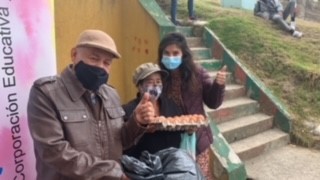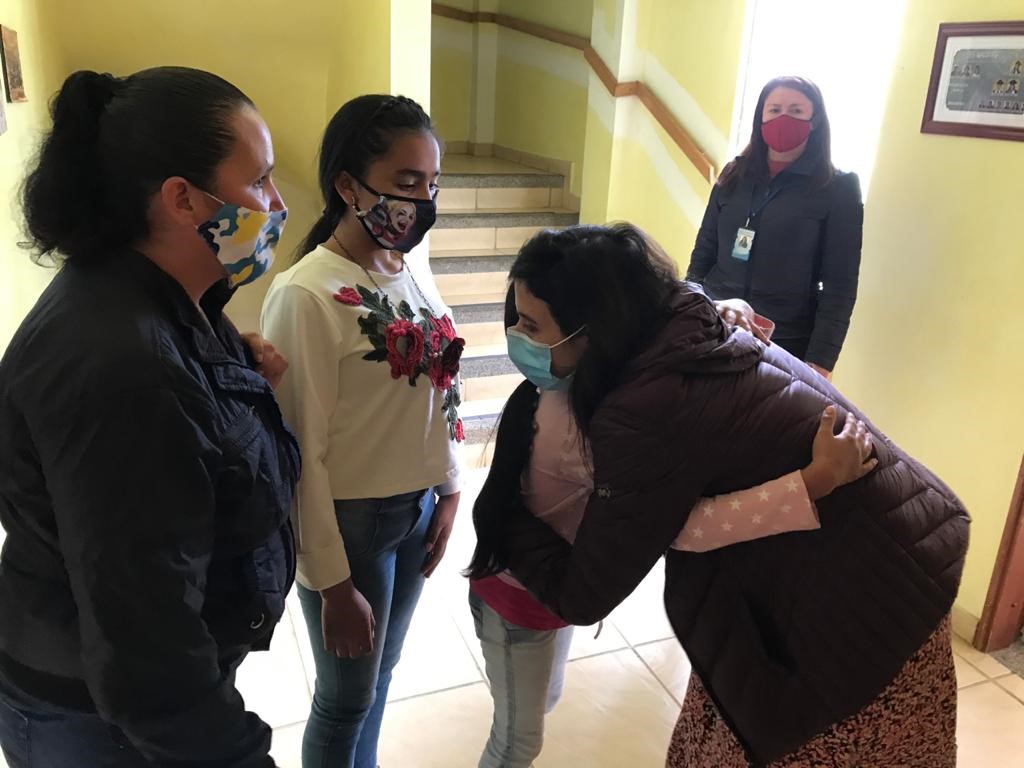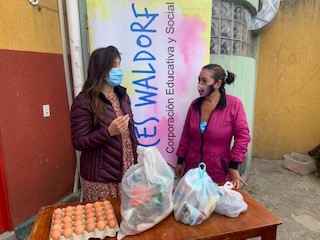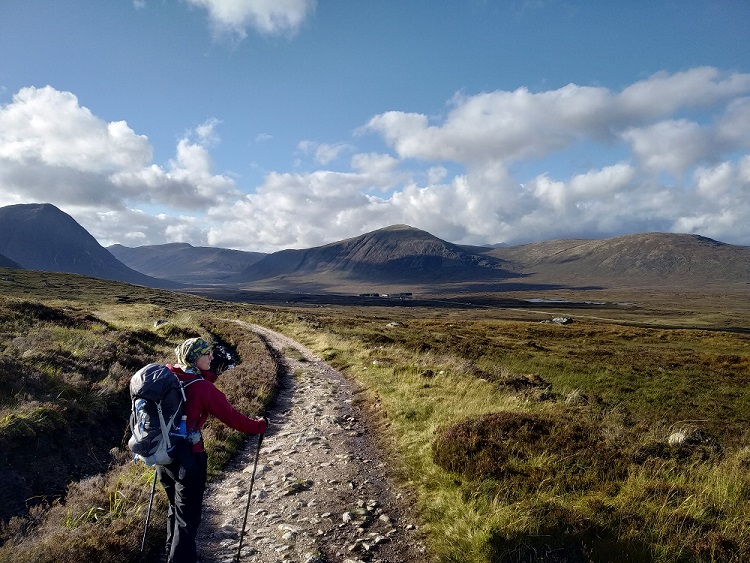Covid-19 - Food packages to the families in Ciudad Bolivar
- Details
- Category: Caritative
Some photo impressions of Ana Meija - MR Bogota, who organized food packages to the families in Ciudad Bolivar. With the donation of the Schinzler Foundation 313 vulnerable families were helped with a complete food package.
 |
 |
 |
West Highland Way - Walk for mental health
- Details
- Category: Caritative
 A Munich Re employee Alicja Nocon and her partner Luke have hiked for ten days across the West Highland Way, coinciding with World Suicide Prevention Day (10 September 2019), in order to raise awareness of suicide and mental health along with the much needed funds for accessing mental health help. In the time it took them to start and complete our journey, 180 more people in the UK would have chosen to end their lives.
A Munich Re employee Alicja Nocon and her partner Luke have hiked for ten days across the West Highland Way, coinciding with World Suicide Prevention Day (10 September 2019), in order to raise awareness of suicide and mental health along with the much needed funds for accessing mental health help. In the time it took them to start and complete our journey, 180 more people in the UK would have chosen to end their lives.
As a male who is aged under 45 and living in the UK, the most likely reason that Luke will die is if he commits suicide. All external causes of death are less deadly than he is, potentially, to himself. However, suicide is not only a male issue, with female suicide rates in the UK rising and more women attempting suicide than men.
Suicide is a complex issue and every case is unique, yet each one devastates families, loved ones and communities. Alicja experienced this first-hand, when a member of her family took his own life in June 2012.
My walk for mental health
- Details
- Category: Caritative
When I realised that my planned hike across Hadrian's Wall coincided with World Suicide Prevention Day (10th September), I wanted to dedicate my walk to raising awareness of mental health, suicide in particular – a cause close to my heart.
Suicide is not just a statistic – it affects real people, friends and family. When contemplating my upcoming walk, my thoughts turned to my own personal experience with suicide. My extended uncle Marian, took his own life in 2012 and a dear colleague of mine, whose son sadly took his own life shortly after his 18th birthday. Earlier this year, during my first trip to the US, TV screens were constantly blaring, showing shocking statistics of the US suicide rate, which has increased by 30% since 2000 – what happened to the American Dream?
Assistance with medical care in rural Togo
- Details
- Category: Enviromnent
The Schinzler Foundation is supporting development projects in the field of medicine in collaboration with the URBIS-Stiftung, a Munich-based private foundation for the environment and international solidarity. The joint objective is to improve living conditions in remote regions of Togo.
In 2017, on the initiative of a former Munich Re employee, Anastasia Golubkova (SFR), the Schinzler Foundation supported the "dispensaires de médicine" in rural regions of Togo (West Africa) with a collection campaign whereby medical aids (crutches, orthoses and dressings) were donated by Munich Re employees.
"Dispensaires de médicine" are small regional health centres staffed by medical personnel or doctors, who also issue whatever medicine is needed (mainly antibiotics and malaria drugs) to the people living in the particular region. Many of the inhabitants have no means of visiting a hospital or a specialist doctor.
In 2018, Anastasia Golubkova began campaigning again, and initiated a further donation with the Schinzler Foundation to improve the equipment in these small health centres and enable the people who live in the regions to obtain better medical care.
The purchase of solar refrigerators by the URBIS-Stiftung meant that medicines could be deposited and stored at cool temperatures. Helped by a donation from the Schinzler Foundation, the existing stocks of antibiotics and malaria drugs in 15 "dispensaires" were topped up and expanded. Roughly 150 families (approx. 600 persons) in the regions can now receive long-term medical care with these drugs.
Operations from "Angels of Charity and Music"
- Details
- Category: Enviromnent
Puno is a region in Peru that is underserved in many respects: It has the country's highest child mortality rate. The region is more than 4115 metres above sea level — which places great stress on the human body. As a result, children who are born with deformities have a very low chance of survival; this is not only due to the harsh climate, but also because of the lack of healthcare. While some hospitals have an intensive care unit for newborns, they cannot afford to provide follow-up treatment or long-term therapy. Patients who undergo an operation in Peru even have to bring their own saline solution with them when they are admitted to hospital. They often have to travel long distances by bus or on foot to reach the hospital.
Many children in this region suffer from deformities, which often means they become the victims of mobbing by their peers. Most of the children's families can only hope for a "miracle operation". But in most cases, they do not have the financial means. This is where the organisation "Angels of Charity and Music (ACM)" comes in.
In 2018, on the initiative of a former colleague, Javier Montero (previously at Great Lakes Toronto), the Schinzler Foundation, in collaboration with Angels of Charity and Music, funded a total of 16 operations on children with deformities to help those affected, and allow them to lead carefree lives. The operations and the several months of follow-up treatment were organised and performed by an international team of doctors working as volunteers at ACM.
Computer access for disadvantaged children in Ukraine and Belarus
- Details
- Category: Children & Young People
Disabled children and children from deprived social classes often have very few opportunities for personal development, or ways to find their own place in society. Volunteers from two Orthodox Christian communities in Belarus and Ukraine will now be able to help a number of children take this important step towards social integration.
With the help of a subsidy from the Schinzler Foundation, a computer room was established in two youth centres for half-orphans and socially disadvantaged and disabled children. A laptop or iPad was also provided for the individual use of especially disadvantaged children. Having the computers and access to the internet gives the children and young adults an opportunity to have their first experience using information technology and communicating with the outside world. For the adolescents concerned, this goes hand-in-hand with a feeling of greater self-confidence. Computer instruction is provided by a specialist teacher.
The Schinzler Foundation paid for the hardware, and helped organise the local transportation of the devices and the purchase of operating and office systems.

